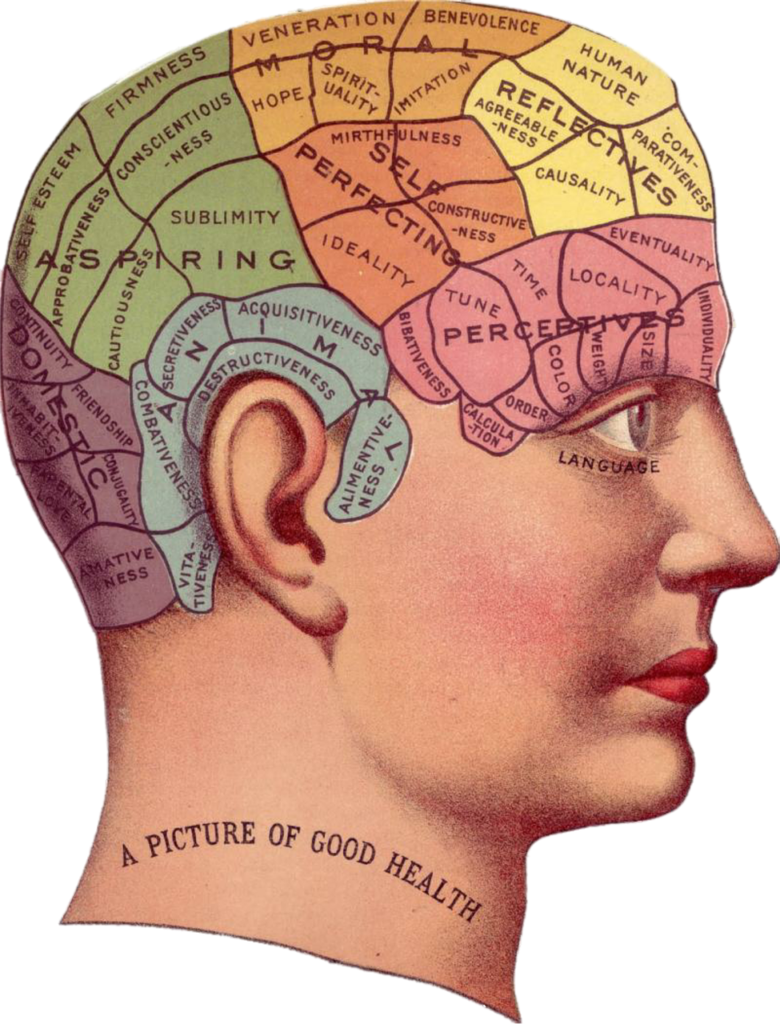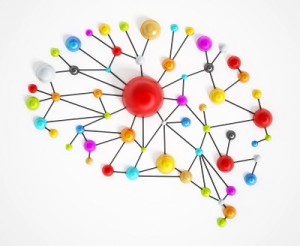- Calls to this hotline are currently being directed to Within Health, Fay or Eating Disorder Solutions
- Representatives are standing by 24/7 to help answer your questions
- All calls are confidential and HIPAA compliant
- There is no obligation or cost to call
- Eating Disorder Hope does not receive any commissions or fees dependent upon which provider you select
- Additional treatment providers are located on our directory or samhsa.gov
Practical Neurobiology for Clinicians: Eating Disorder Diagnoses & Neurology – Part III

As a child psychiatrist, I don’t often get a lot of biological information.
I’ll see if someone has anorexia by how their body looks, whether or not they are malnourished, etc.
However, the amount of information I’m getting about how their brain works, and therefore, which medicines might work, is pretty minimal.
Genetic information also provides information; however, most genetic tests now are focused on how drugs are metabolized and not how well they will actually work.
If I do get genetic information, it is usually asking about relatives.
For example, if an individual has an aunt and grandma that are also diagnosed with Generalized Anxiety Disorder and all have done great on Prozac, that means there is a greater chance the patient themselves might also do well on Prozac.
Another example is to look at medical illness. Illnesses such as lupus or syphilis often present like diabetes, for example by the individual having very high or low blood sugar, but you wouldn’t use the same intervention to treat this.
You may also have illnesses where the same thing is causing it, but it might impact each individual’s body differently.
The Vulnerable Brain
An example of this is a study that looked at an area of the brain known as the anterior insula. This part of the brain is studied a lot when looking at depression, anxiety, and eating disorders.
They looked at the anterior insula with individuals using Lexapro (Escitalopram) or cognitive behavioral therapy. They found that when the anterior insula was less busy than the rest of the brain at rest, those people tended to do better with cognitive behavioral therapy. When the anterior insula tended to be overactive as compared to the rest of the brain, they didn’t do better with Lexapro.
Now, greater anterior insula activation with anorexia happens when an individual is anticipating something happening. This also corresponds to Alexithymia, being that individuals with anorexia often are not good at identifying their emotions. Therefore, they tend to be expressed in their body or through avoidance, OCD, or other symptoms.
For those that aren’t therapists, with Cognitive Behavioral Therapy, you have to have a cognition, and then you have to link it to a behavior and determine if there are distortions.
If you’re not good at identifying what emotion you’re experiencing in the first place, your brain probably doesn’t do the process of CBT as well.
So, by studying the brain, we can see if it functions in that way or not.
The hope would be that we can learn more information about which medicines would work better based on a neurological response, or, possibly, which therapies might work better.
The big picture is that eating disorders are mental illnesses and, in my opinion, are more commonly stress and anxiety disorders that are not always expressed in precisely the same way, which leads to issues with how you approach them or how an individual responds to treatment.
 One size cannot fit all in mental illness, but, just as in medical illness, there are common underlying traits and ways that the brain is genetically pre-programmed to put an individual at risk for eating disorders or not.
One size cannot fit all in mental illness, but, just as in medical illness, there are common underlying traits and ways that the brain is genetically pre-programmed to put an individual at risk for eating disorders or not.
For example, with pure restricting anorexia, it is extraordinarily hard to get because your brain has a lot of fail-safes to get around negative ideas on how the brain relates to food, ability to go without food, thoughts on distorting your body, etc.
Essentially, with eating disorders, you have to have a brain that is capable of getting an eating disorder, and most brains are not.
Environmental Factors
Now, just as with medical illness, those brains are acted upon, especially as they go through development, by hormones and other developmental brain changes and environmental pressures such as trauma, the stress of getting older, etc.
An underlying trait that almost all of our patients have is that they don’t have stress-resilient brains which, then, puts them at higher risk for anxiety or experiencing trauma.
Our patients often say, “I don’t want a non-stress-resilient brain, I don’t want to be anxious,” remember that this does not define everything about the patient.
We know that anxiety is correlated with high intelligence, so, the smarter you are, the more likely you are to have anxiety.
Anxiety also corresponds with empathy, your ability to connect to others.
Finally, it corresponds with safety, as the reward systems of people that are more anxious don’t work as well, making the individual less likely to use drugs, get pregnant early, or jump out of an airplane without a parachute.
As such, it isn’t necessarily a bad thing.
State of Disorder
While these traits may increase the risk for an illness, it is important to note that illnesses are sustained by states.
For example, anorexia involves the state of malnutrition, continual refusal, and avoidance combined with a lack of nutrition which impacts the brain and how it works.
In bulimia, the state can still be malnutrition even though individuals tend to not take in adequate nutrition.

These states are the quicksand that can maintain the illness of an eating disorder.
As such, they are what you need to get back.
You need to get nourishment back. You need to get the individual out of the cycle of bingeing and purging.
Then, long-term recovery results from an understanding of how the individual got them to that point, what are their red-flags for relapse, what triggers those behaviors and how does the individual live a life when they can avoid all of these in the future.
Summary
Again, the Cycle of Eating Disorders is the individual has a brain with risks or vulnerabilities. This combines with environmental factors that can trigger these risks or vulnerabilities. These two aspects then combine to result in the State of the eating disorder.
Please See
Practical Neurobiology for Clinicians: Eating Disorder Diagnoses & Neurology – Part I
Practical Neurobiology for Clinicians: Eating Disorder Diagnoses & Neurology – Part II
Source:
Virtual Presentation by Scott E. Moseman, M.D., CEDS in the December 8, 2018, Eating Disorder Hope Virtual Conference III: Blasting Through Bias: A Deep Dive into Underserved Populations and Global Issues 2018
Author:
 Scott E. Moseman, M.D., CEDS, has worked with the Laureate Eating Disorders Program since completing his child psychiatry training in 2004, and he currently serves as medical director of the program. He is a board-certified child and adolescent psychiatrist who received his fellowship training at Western Psychiatric Institute and Clinic in Pittsburg, Pennsylvania, where he served as chief fellow.
Scott E. Moseman, M.D., CEDS, has worked with the Laureate Eating Disorders Program since completing his child psychiatry training in 2004, and he currently serves as medical director of the program. He is a board-certified child and adolescent psychiatrist who received his fellowship training at Western Psychiatric Institute and Clinic in Pittsburg, Pennsylvania, where he served as chief fellow.
Dr. Moseman received his medical training from Texas A&M Health Science Center and completed his adult psychiatric training at the University of Arizona. He has spoken throughout the country on topics related to child psychiatry, and he has specific interests in eating, mood and anxiety disorders. Currently, Dr. Moseman is collaborating with Kyle Simmons, Ph.D., at the Laureate Institute for Brain Research to study neural circuits associated with eating disorders using the facility’s state-of-the-art fMRI.
Dr. Moseman has sat on the board for the American Academy of Child and Adolescent Psychiatry as well as co-chaired the special interest group on child and adolescent care for the Academy for Eating Disorders. He currently sits on the board for the Oklahoma Eating Disorders Association.
Editor: Margot Rittenhouse, MS, NCC, PLPC. Learn More About Dr. Scott E. Moseman
 About the Transcript Editor: Margot Rittenhouse, MS, NCC, PLPC is a therapist who is passionate about providing mental health support to all in need and has worked with clients with substance abuse issues, eating disorders, domestic violence victims, and offenders, and severely mentally ill youth.
About the Transcript Editor: Margot Rittenhouse, MS, NCC, PLPC is a therapist who is passionate about providing mental health support to all in need and has worked with clients with substance abuse issues, eating disorders, domestic violence victims, and offenders, and severely mentally ill youth.
As a freelance writer for Eating Disorder and Addiction Hope and a mentor with MentorConnect, Margot is a passionate eating disorder advocate, committed to de-stigmatizing these illnesses while showing support for those struggling through mentoring, writing, and volunteering. Margot has a Master’s of Science in Clinical Mental Health Counseling from Johns Hopkins University.
The opinions and views of our guest contributors are shared to provide a broad perspective of eating disorders. These are not necessarily the views of Eating Disorder Hope, but an effort to offer a discussion of various issues by different concerned individuals.
We at Eating Disorder Hope understand that eating disorders result from a combination of environmental and genetic factors. If you or a loved one are suffering from an eating disorder, please know that there is hope for you, and seek immediate professional help.
Published on January 22, 2019.
Reviewed & Approved on January 22, 2019, by Jacquelyn Ekern MS, LPC
Published on EatingDisorderHope.com

The EatingDisorderHope.com editorial team comprises experienced writers, editors, and medical reviewers specializing in eating disorders, treatment, and mental and behavioral health.


